- Home
- Tim LaHaye
John's Story: The Last Eyewitness Page 11
John's Story: The Last Eyewitness Read online
Page 11
“Nothing happens outside of God’s timing.” Even as he said it John realized how shallow this platitude sounded. There was no question he had spoken the truth, but should he have admitted that while he pined for heaven, he dreaded the passage from one life to the next?
“It was just a figure of speech, teacher. How can you be annoyed with me when my concern is earnest?”
“I appreciate it and you, Polycarp, truly I do. But we must not waste time discussing me. You know the urgency of the matter at hand and the few days we have to finish the task. Let us get on with it. I want to pick up the story a year later, again near the time of Passover. Are you ready?”
“Of course.”
“This is a story you have read or heard from the accounts of my colleagues, one of the most thrilling episodes in the life of our Lord.”
“The feeding of the multitudes?”
“That is the one. And while there may not seem a need for me to repeat it, I feel compelled to, as it again supports my thesis. If the healing of the paralyzed man at the Pool of Bethesda was yet another sign of Jesus’ deity, what did it portray?”
“Ah, I am now the student again, and not just the secretary?”
“Consider yourself studying with me every day.”
“That is how it feels. Well, Jesus was not subject to the law. Specifically the law of the Sabbath.”
“Excellent. By now we have shown that He is the provider of life, the master over distance, and now the master over time. With what He accomplishes here we will have to acknowledge that He is, as He said, the Bread of Life. Do you not find it interesting that two of His signs have to do with wine and bread, the very elements He would eventually use to symbolize his body and blood?”
“Interesting? Rabbi, sitting under your teaching all these years and now being privileged to record your account have been the apexes of my life. I cannot imagine anything that could hope to compare.”
“I just pray these have been laying for you a foundation for your ministry, because, as I have said, the greater church has need of you. Pray that you will remain pure of heart and close to Christ.”
“I will.”
John scrutinized the young man. “You love children, do you not?”
Polycarp nodded, clearly puzzled.
“I ask only because they are the lifeblood, the future, of the church. The Master Himself was particularly fond of youngsters. Everywhere we went He sought them out, but usually He didn’t have to. They were drawn to Him. They could see in His eyes, in His smile, that He loved them. They would gather about Him and climb into His lap as He spoke. And though He was speaking to their parents of things far beyond their comprehension, they seemed settled and quiet in His presence. They sensed His care, perhaps sensed His importance. And when He was finished telling the mysteries of heaven and the kingdom and often parables confusing even to those of us who knew Him best, He would then turn His attention to the children. He told them stories from the Scriptures, stories of the heroes and miraculous events of generations past.
“That affected me, Polycarp, and while I had long since lost touch with people less than half my age, I found myself drawn to them anew. That is what happened the day of the miraculous feeding. It was near the time of Passover again, and we had gone with Jesus across the Sea of Galilee, which is the Sea of Tiberias. By now huge crowds were trying to follow Him everywhere He went, because they had seen the miracles He had performed on those who were diseased. We tried to give Him some peace away from the people and so we led Him up on the mountain where He sat to rest.
“Well, it wasn’t long before we began to hear voices and the sound of many people milling about. Thousands of them. I’ll never forget Jesus looking up and seeing a great multitude coming toward Him. He said to Philip, ‘Where shall we buy bread, that these may eat?’ I know now, of course, that Jesus was only testing Philip, for He Himself knew what He would do.
“Philip said, ‘Two hundred denarii worth of bread is not sufficient for them, that every one of them may have a little.’”
“A denarius is a whole day’s wage now,” Polycarp said.
“It was nearly the same then. Yes, Philip was right. Seven months’ wages would not have bought enough bread. Jesus had assigned us—and by now we disciples were many—to see that the people were directed to areas where they could hear Him. Imagine His speaking to such a throng. He was soft-spoken with us, but when need be, His voice would ring out clear and powerful.
“Well, Andrew and I spied a young lad carrying a leather bag. I was intrigued with him because he appeared to be alone. ‘Have you lost your parents?’ I said.
“‘No,’ he replied, shaking my hand. ‘My name is Nathanael. You may call me Nathan. I came to hear and see the miracle worker.’
“Andrew said, ‘You know we have one among us with your name?’
“‘Truly?’ the boy said, scowling playfully as if he thought Andrew was teasing.
“‘Verily,’ Andrew said. ‘Perhaps later you can meet him. For now we are all busy.’
“And the engaging boy said, ‘Well, if you get hungry, I have plenty of food. I believe my mother feared I would be gone the entire day. Look.’
“He opened the leather bag slung over his shoulder, and we could smell immediately that the fish was local and fresh. I peered in. He had two undersized but meaty beauties. I told him I was a fisherman and asked if he had caught these himself. He shook his head. ‘But I caught these, right out of my mother’s oven this morning.’ He showed five small loaves of golden brown bread.
“‘A veritable feast!’ I teased him. ‘At least for me. But what would you eat?’
“‘You couldn’t eat all of this,’ he said, laughing. ‘But if you or your friends or the Teacher need it, you can have it.’
“Later, when Jesus was asking how we would possibly feed nearly twenty thousand people—there were about five thousand men alone, and nearly all had their families with them—Andrew went looking for the boy again. When Andrew returned, he reported that the boy gladly gave his entire lunch, ‘of five barley loaves and two small fish, but what are they among so many?’
“Then Jesus said, ‘Make the people sit down.’ So the people sat in the grass. And Jesus took the loaves, and when He had given thanks He distributed them to the disciples, and the disciples to those sitting down; and likewise of the fish, as much as they wanted. You can only imagine, I had never seen anything like it. No one had. My mates and I kept giving one another wondering looks as people ate and ate and ate. And when they were filled, Jesus told us, ‘Gather up the fragments that remain, so that nothing is lost.’ Polycarp, we filled twelve baskets with the fragments of the five barley loaves that were left over by those who had eaten.
“I went looking for the lad Nathan, but I never saw him again and so was never able to ask if he realized that it was his gift the Lord had miraculously multiplied to feed that whole crowd and leave leftovers for us disciples to enjoy later that evening. No doubt the boy ate his fill that afternoon as well.”
“What must the people have thought?” Polycarp said.
“I am not certain all knew what had happened. But many did, and the word spread quickly. Some said, ‘This is truly the Prophet who is to come into the world.’
“Jesus told us He perceived they were about to come and take Him by force to make Him king, so He departed again to the mountain by Himself alone. When we were certain He was safe, we headed down to the sea. By the dark of the evening, He still had not joined us. We knew better than to wait for Him. He did not report to us, after all. We crowded into the boat and went over the sea toward Capernaum. Suddenly the sea arose with great waves under a huge wind. We must have rowed three or four miles. I wondered if we would ever reach the shore at Capernaum.
“Squinting into the darkness, I fell back, grabbing Peter’s shoulder and pointing. What was that on the water? A ghost? It was the form of a man! He was walking on the sea and drawing near the boat! We were terrified.
“Jesus said, ‘It is I; do not be afraid.’ I nearly wept from relief as we eagerly helped Him into the boat. Instantly we were at the shore.”
“What? But you said you had rowed a few miles in the storm.”
“I’m telling you,” John said, “that we were there just like that,” and he snapped his fingers. “In an instant.”
“A miracle in itself.”
“True, but it was His walking on the water that was the fifth major sign proving His deity.”
“He was master over nature.”
“Every day we were with Him, Polycarp, we witnessed such things. He knew the hearts of the multitude and that they were actually of a mind to make Him their king. Imagine if He had not known that. His hour had not yet come, and so He was able to steal away alone until they had left. He told us later He was disappointed that despite what they had seen and heard that day—and despite that they had been fed both physically and spiritually—it seemed all they cared about was themselves. They wanted Him to be their victorious leader, delivering them from the tyranny of the Romans. That’s what they thought the Messiah was all about.”
“Teacher, did you ever wake up wondering if you had dreamt all this?”
“More than once. Every morning I found it reassuring to look about me and see my brother and old and new friends, but especially to see Jesus. Not a day passed in which He did not tell me that He loved me. I knew it. He showed it in so many ways, not just to me, but to all of us, of course. And all this might still seem like a dream had it not been for His resurrection. That so burned itself into my mind and soul that I recall every detail of it, and it brings back to me all the events of the previous three years too.”
THIRTEEN
Friday morning broke unusually hot for autumn in Ephesus, and John despaired to realize he was feeling no better. He did not look forward to the frowns of concern—which always looked like pity—on the faces of Ignatius and Polycarp. Yet today he feared he must break down and ask for help. Not for a doctor. No, it was much too early for that and would create more alarm than he cared to, in light of the task at hand. But he needed a bath, and he could not manage the stairs.
The sad fact was, he had to ask to move to a room on the first floor. That way he might be able to care for himself somewhat and not have to depend so much on others for his simple needs. If only he could count on his protégés not to make a fuss. Trading rooms with Ignatius would be ideal, but John simply wanted this without fanfare. He and Polycarp had much to cover. And if the move could be effected early, he might enjoy cooler air throughout the day.
To John’s amazement, Ignatius and Polycarp had apparently lost interest in how he looked in the morning. They arrived with something else on their minds.
“Late in the afternoon yesterday,” Ignatius said, “I got word in the city that a disciple of Cerinthus was making the rounds, telling people of a church that would soon be formed.”
“Old news,” John said.
“But that they are spreading the word, that’s news. I wanted to talk to the young man. I had something I wanted communicated to Cerinthus, not knowing whether he was still in the city.”
“To Cerinthus?” John said. “What?”
“I wanted to invite him to church.”
John scowled at Ignatius. “You’re mad.”
“That’s what I said,” Polycarp said. “In fact, if I had seen Cerinthus I would have told him I believe he is a child of the devil.”
“Well,” Ignatius said, “he may be what you say, but consider the effect on him should he sit under the teaching of true doctrine, inspired by the living God. Besides, it would give us a chance to engage him once more.”
“Forgive my lack of faith,” John said, “but surely you don’t expect to be able to reason with the man, to make sense to him.”
“I thought you would welcome the opportunity to try.”
John sat on the edge of his bed. “And so? Did you find him, or did you send word with his man?”
“The latter,” Ignatius said. “Of course he laughed in my face.”
“The impudence! Even if the invitation sounds ludicrous, with which I must agree, how dare a young man respond to his elder that way?”
“I too was offended, John,” Ignatius said, “but I did not remain so. And I was quite clear in telling him where and when Cerinthus should come.”
John camouflaged his physical discomfort with concern. “Bishop! Was that wise? It is already difficult enough to hide the largest Christian church in all of Asia.”
Ignatius paused. “We need not worry about Cerinthus turning us in to the Romans. While we know he is apostate, they would consider him in league with us. Exposing us would merely leave him vulnerable to the same.”
John pondered this. “Perhaps. I am not so sure he wouldn’t jump at the chance to expose us to Rome. I don’t know whether to hope he arrives or not.”
“I hope he does!” Polycarp said.
“I’m sure you do. Ah, the naïveté of youth.”
Polycarp looked crestfallen.
“Oh, son, I didn’t intend that to be mean. In truth I envy your idealism. Certainly I would love to face the man again too, but I wish I were your age again, or even Ignatius’s. Yet I fear we would be allowing the nose of the camel under our tent.”
John was relieved that his health had not become the topic of conversation, but that reprieve was short-lived. Presently Ignatius said, “So how are you this summer day anyway?”
“It does feel like summer, doesn’t it? I need to ask, Ignatius, if there would be any chance we could trade quarters.”
“Too hot for you up here?”
“Yes.”
“That is an aberration, as I’m sure you know, and within a fortnight the guest room might prove too cold for you.”
“If you wouldn’t mind, I would like to work down there, especially today, but it would be of great help if I could permanently move.”
In less than an hour the switch was made, and John was so delighted with his new chambers that he wished he had made the request days earlier. He had much more room, another window on yet another wall, and a bigger desk for Polycarp too. They dove directly into their work.
“Well, the next day, the people on the other side of the sea had to be astonished that Jesus was not there. They had seen us leave, so they knew He had to still be in the area. When they could not find Him, they sailed to Capernaum. And when they found Him on the other side of the sea, they said, ‘Rabbi, when did You come here?’
“Jesus said, ‘Most assuredly, I say to you, you seek Me, not because you saw the signs, but because you ate of the loaves and were filled. Do not labor for the food which perishes, but for the food which endures to everlasting life, which the Son of Man will give you, because God the Father has set His seal on Him.’
“So He’s changing the subject, teacher? Evading their question?”
“Clearly. And by turning the lamp onto them, He makes them forget that He seemed to have no way to get across the lake. They said, ‘What shall we do, that we may work the works of God?’
“Jesus said, ‘This is the work of God, that you believe in Him whom He sent.’
“Of course they still did not understand and said, ‘What sign will You perform then, that we may see it and believe You? What work will You do? Our fathers ate the manna in the desert; as it is written, “He gave them bread from heaven to eat.” ’
“Jesus said, ‘Most assuredly, I say to you, Moses did not give you the bread from heaven, but My Father gives you the true bread from heaven. For the bread of God is He who comes down from heaven and gives life to the world.’
“They said, ‘Lord, give us this bread always.’
“Now, listen carefully, Polycarp. This is such a wonderful saying. Jesus said, ‘I am the bread of life. He who comes to Me shall never hunger, and he who believes in Me shall never thirst. But I said to you that you have seen Me and yet do not believe. All that the Father gives Me wi
ll come to Me, and the one who comes to Me I will by no means cast out. For I have come down from heaven, not to do My own will, but the will of Him who sent Me. This is the will of the Father who sent Me, that of all He has given Me I should lose nothing, but should raise it up at the last day. And this is the will of Him who sent Me, that everyone who sees the Son and believes in Him may have everlasting life; and I will raise him up at the last day.’”
John took a deep breath and sat. As encouraged as he was with his new room, he found himself sitting more and even lying down occasionally as he dictated, which naturally caused Polycarp alarm. The young man continually entreated him to break, to take refreshment, to nap, to see a doctor.
“Verily, lad, you must stop this. Can we not establish that if I have need of anything, anything at all, I will admit it?”
Again it was plain he had offended Polycarp. “I am only trying to—”
“I know, son, I know! Please! I do not know how else to say this. You know how uncomfortable it makes me when one is so solicitous of me.”
The young man shrugged, and John was content that he had kept Polycarp at bay yet again. But in truth, he knew he should take a break and gather himself. While he feared he was not being a worthy steward of his own resources, John’s greater dread was that they would run out of days. If despite all the Lord had brought him through, he expended his life over what might seem to some a menial task, so be it. He would consider it a worthy investment. Unlike Ignatius, he did not desire, nor did he see as necessary or gallant, a martyr’s death any more dramatic than that.
FOURTEEN
It had been John’s custom to eat only morning and evening meals, but as his strength waned, he lay down and asked Polycarp to fetch him some midday sustenance. The young man hurried off, leaving John to regret how he had seemed so frequently to brush aside the lad’s obvious concern for him and his welfare.

 Glorious Appearing: The End of Days
Glorious Appearing: The End of Days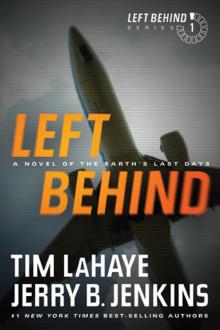 Left Behind: A Novel of the Earth's Last Days
Left Behind: A Novel of the Earth's Last Days Kingdom Come: The Final Victory
Kingdom Come: The Final Victory Nicolae: The Rise of Antichrist
Nicolae: The Rise of Antichrist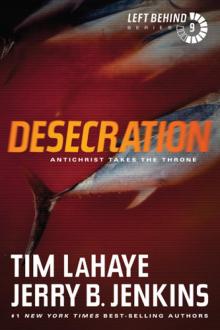 Desecration: Antichrist Takes the Throne
Desecration: Antichrist Takes the Throne Mark's Story: The Gospel According to Peter
Mark's Story: The Gospel According to Peter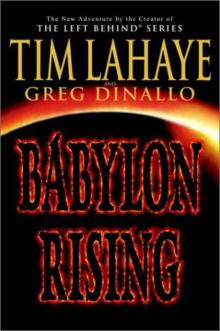 Babylon Rising
Babylon Rising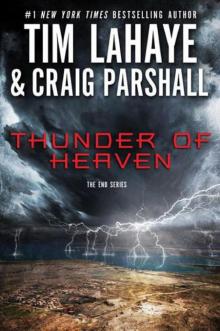 Thunder of Heaven: A Joshua Jordan Novel
Thunder of Heaven: A Joshua Jordan Novel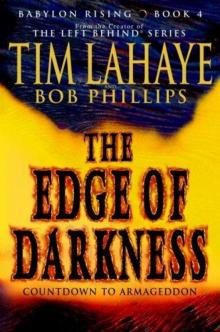 The Edge of Darkness
The Edge of Darkness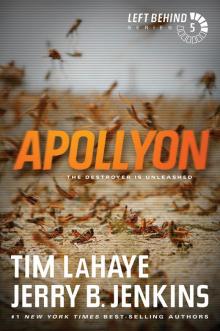 Apollyon: The Destroyer Is Unleashed
Apollyon: The Destroyer Is Unleashed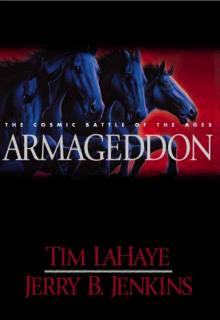 Armageddon: The Cosmic Battle of the Ages
Armageddon: The Cosmic Battle of the Ages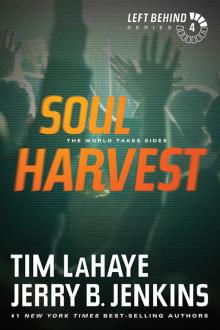 Soul Harvest: The World Takes Sides
Soul Harvest: The World Takes Sides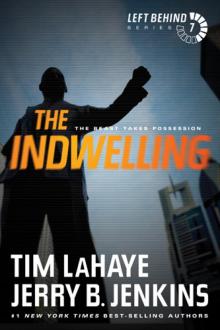 The Indwelling: The Beast Takes Possession
The Indwelling: The Beast Takes Possession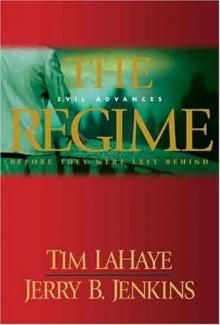 The Regime: Evil Advances
The Regime: Evil Advances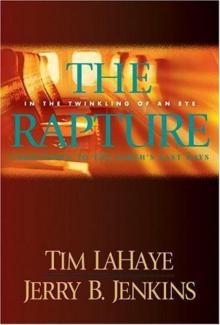 The Rapture: In the Twinkling of an Eye / Countdown to the Earth's Last Days
The Rapture: In the Twinkling of an Eye / Countdown to the Earth's Last Days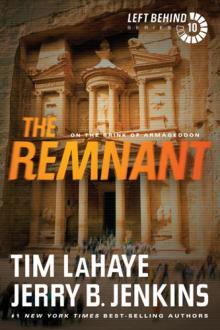 The Remnant: On the Brink of Armageddon
The Remnant: On the Brink of Armageddon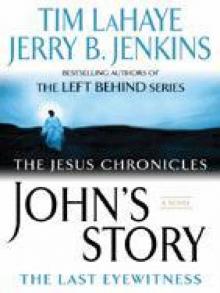 John's Story: The Last Eyewitness
John's Story: The Last Eyewitness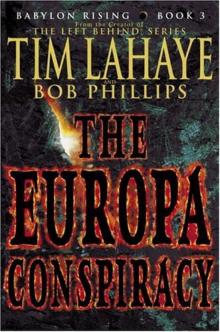 The Europa Conspiracy
The Europa Conspiracy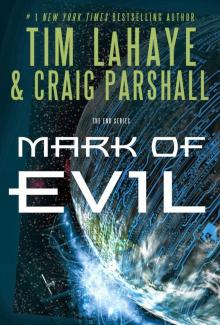 Mark of Evil
Mark of Evil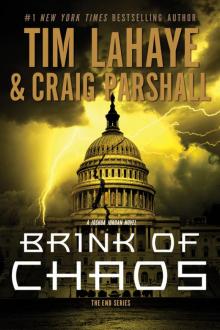 Brink of Chaos
Brink of Chaos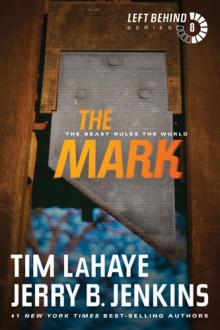 The Mark: The Beast Rules the World
The Mark: The Beast Rules the World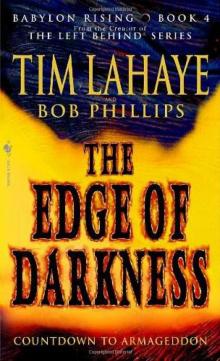 04 The Edge of Darkness
04 The Edge of Darkness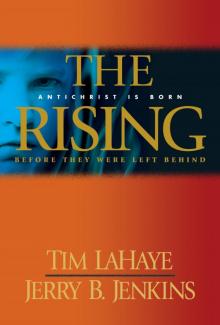 The Rising: Antichrist is Born / Before They Were Left Behind
The Rising: Antichrist is Born / Before They Were Left Behind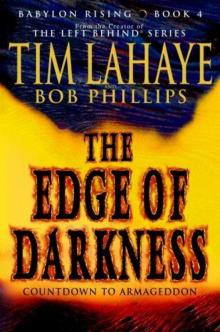 Babylon Rising: The Edge of Darkness
Babylon Rising: The Edge of Darkness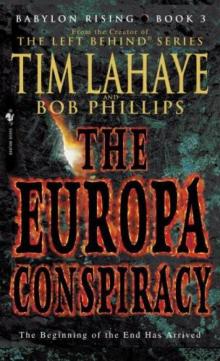 03 The Europa Conspiracy
03 The Europa Conspiracy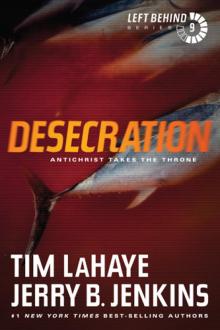 Desecration
Desecration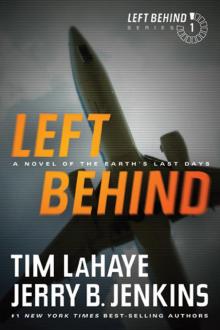 Left Behind
Left Behind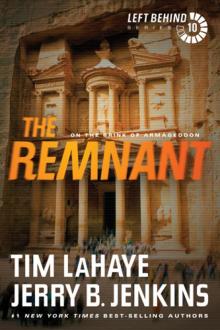 The Remnant
The Remnant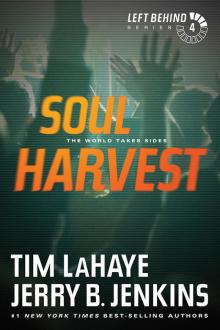 Soul Harvest
Soul Harvest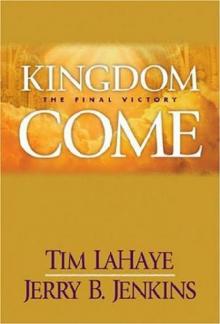 Left Behind Book 13: Kingdom Come The Final Victory
Left Behind Book 13: Kingdom Come The Final Victory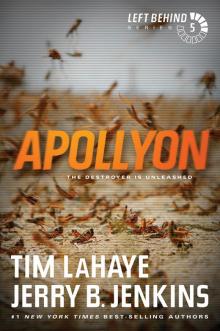 Apollyon
Apollyon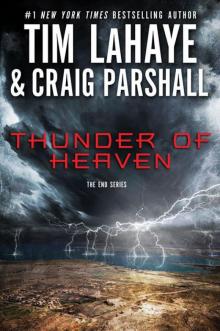 02 Thunder of Heaven: A Joshua Jordan Novel
02 Thunder of Heaven: A Joshua Jordan Novel Glorious Appearing
Glorious Appearing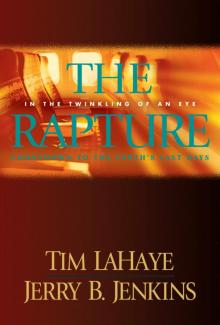 The Rapture: Evil Advances / Before They Were Left Behind
The Rapture: Evil Advances / Before They Were Left Behind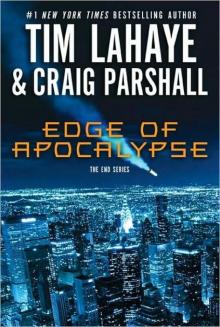 Edge of Apocalypse
Edge of Apocalypse Tribulation Force
Tribulation Force The Left Behind Collection: All 12 Books
The Left Behind Collection: All 12 Books Black Friday
Black Friday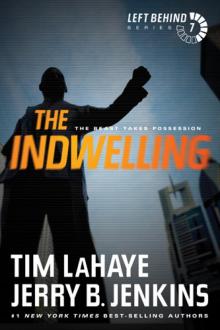 The Indwelling
The Indwelling The Left Behind Collection
The Left Behind Collection